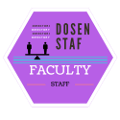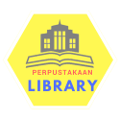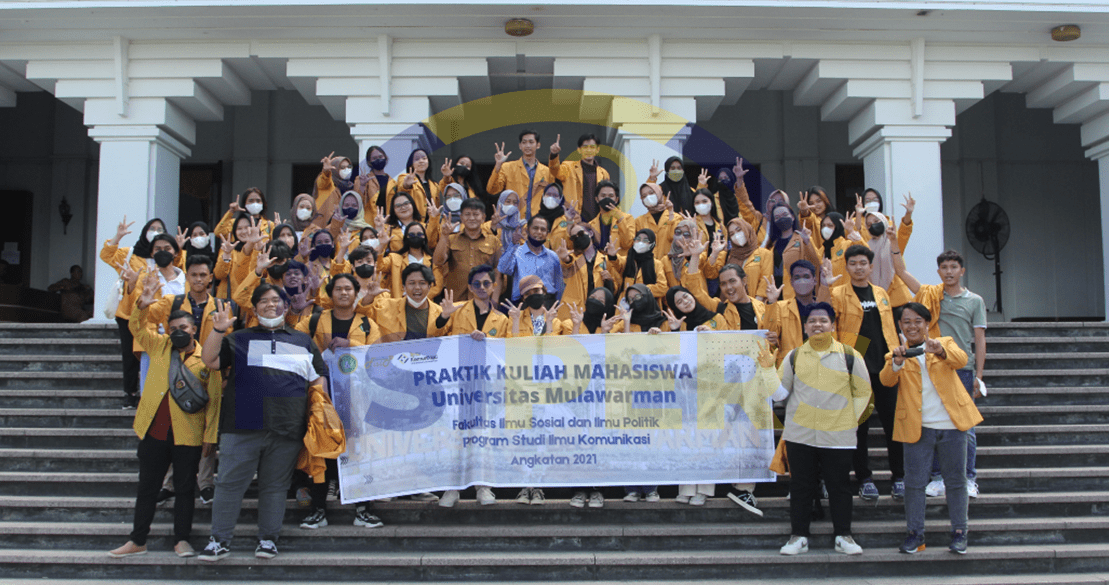 FISIP UNMUL - Mahasiswa-mahasiswi Program Studi Ilmu Komunikasi B angkatan 2021, Fakultas Ilmu Sosial dan Ilmu Politik, Universitas Mulawarman menyelenggarakan kuliah lapangan untuk pertama kalinya setelah sebelumnya terhalang oleh pandemi. Guna memenuhi syarat Ujian Akhir Semester (UAS) pada mata kuliah Jurnalistik, kuliah lapangan pun diadakan secara offline tepatnya di Museum Mulawarman, Jl. Tepian Pandan, Panji, Kec. Tenggarong, Kabupaten Kutai Kartanegara, Kalimantan Timur pada Selasa, (24/5). Kegiatan tersebut diikuti oleh 55 orang mahasiswa dan mahasiswi Ilmu Komunikasi angkatan 2021 yang memulai keberangkatannya di titik kumpul pada pukul 10.30 WITA.
FISIP UNMUL - Mahasiswa-mahasiswi Program Studi Ilmu Komunikasi B angkatan 2021, Fakultas Ilmu Sosial dan Ilmu Politik, Universitas Mulawarman menyelenggarakan kuliah lapangan untuk pertama kalinya setelah sebelumnya terhalang oleh pandemi. Guna memenuhi syarat Ujian Akhir Semester (UAS) pada mata kuliah Jurnalistik, kuliah lapangan pun diadakan secara offline tepatnya di Museum Mulawarman, Jl. Tepian Pandan, Panji, Kec. Tenggarong, Kabupaten Kutai Kartanegara, Kalimantan Timur pada Selasa, (24/5). Kegiatan tersebut diikuti oleh 55 orang mahasiswa dan mahasiswi Ilmu Komunikasi angkatan 2021 yang memulai keberangkatannya di titik kumpul pada pukul 10.30 WITA.
Kedatangan mahasiswa dan mahasiswi disambut hangat oleh Drs. Dzul Arfin selaku plt Kepala Museum dan Aji Haji Pangeran Hario Kesuma Poegar selaku Dewan Penasehat Kesultanan yang juga merupakan narasumber berkompeten di bidangnya.
"Kedatangan kami hari ini bersama 55 mahasiswa Ilkom yaitu ingin mengetahui serta belajar terkait eksistensi museum Mulawarman yang sudah terkenal hingga kancah internasional. Harapannya adik-adik mahasiswa sebagai generasi muda mampu menghadapi IKN dengan berbekal kemampuan Jurnalistik dan Public Relations. Ending dari kegiatan ini mereka akan menuangkan ke 3 jenis berita berupa narasi dan visualisasi. Mudah-mudahan adik-adik mahasiswa peka menerima penjelasan dan merangkum penjelasan dari narasumber sehingga tidak kering informasi. Pada saatnya nanti jangan ragu bertanya karena narasumber ini pakar mengenai museum ini.” tutur Drs. Andik Riyanto, M.Si selaku dosen pengampu mata kuliah Jurnalistik.
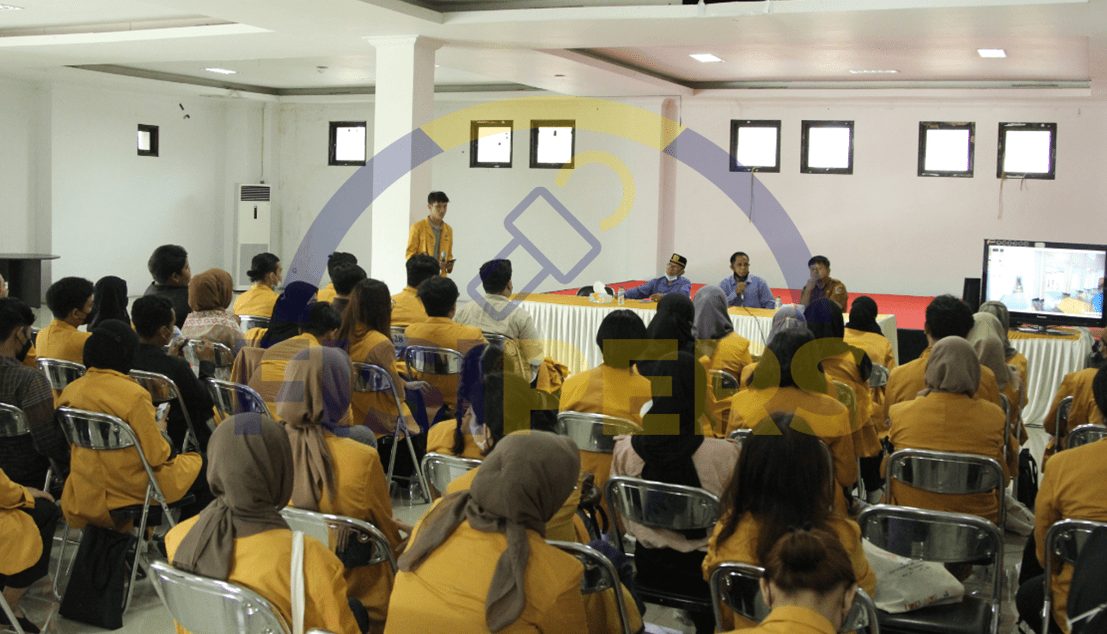 Kegiatan dilanjutkan dengan pengarahan dan penyampaian materi mengenai museum Mulawarman oleh Aji Haji Pangeran Hario Kesuma Poegar selaku Dewan Penasehat Kesultanan terkait sejarah museum Mulawarman juga asal muasalnya yang pada zaman dahulu milik Kerajaan Kutai. Pada tahun 1971 gedung museum ini dibentuk kemudian pada tahun 1975 oleh pemerintah Kutai museum di serahkan kepada pemerintah provinsi. Kini, struktur pengelolaan museum terdiri dari satu orang kepala museum, dua orang KASI, dan seorang KASUBAG.
Kegiatan dilanjutkan dengan pengarahan dan penyampaian materi mengenai museum Mulawarman oleh Aji Haji Pangeran Hario Kesuma Poegar selaku Dewan Penasehat Kesultanan terkait sejarah museum Mulawarman juga asal muasalnya yang pada zaman dahulu milik Kerajaan Kutai. Pada tahun 1971 gedung museum ini dibentuk kemudian pada tahun 1975 oleh pemerintah Kutai museum di serahkan kepada pemerintah provinsi. Kini, struktur pengelolaan museum terdiri dari satu orang kepala museum, dua orang KASI, dan seorang KASUBAG.
“Sebelumnya saya ucapkan selamat datang kepada adik-adik sekalian atas kunjungannya ke museum mulawarman. Untuk mengomunikasikan data dan informasi dari benda-benda cagar budaya juga merupakan tugas dari seorang mahasiswa. Saat ini jumlah koleksi yang terdapat di museum Mulawarman sebanyak lebih dari 5000 jenis koleksi. Perlu diketahui bahwa koleksi museum adalah benda yang sudah dianggap benda cagar budaya. Koleksi museum nantinya akan diklasifikasikan sesuai kedudukan dan ciri khas dari benda tersebut. Kemudian, untuk jenis museum sendiri ada 2, museum umum dan khusus pembedanya ada di jenis koleksi.” papar Drs. Dzul Arfin selaku plt Kepala Museum dalam kesempatannya sebagai pemateri kedua.
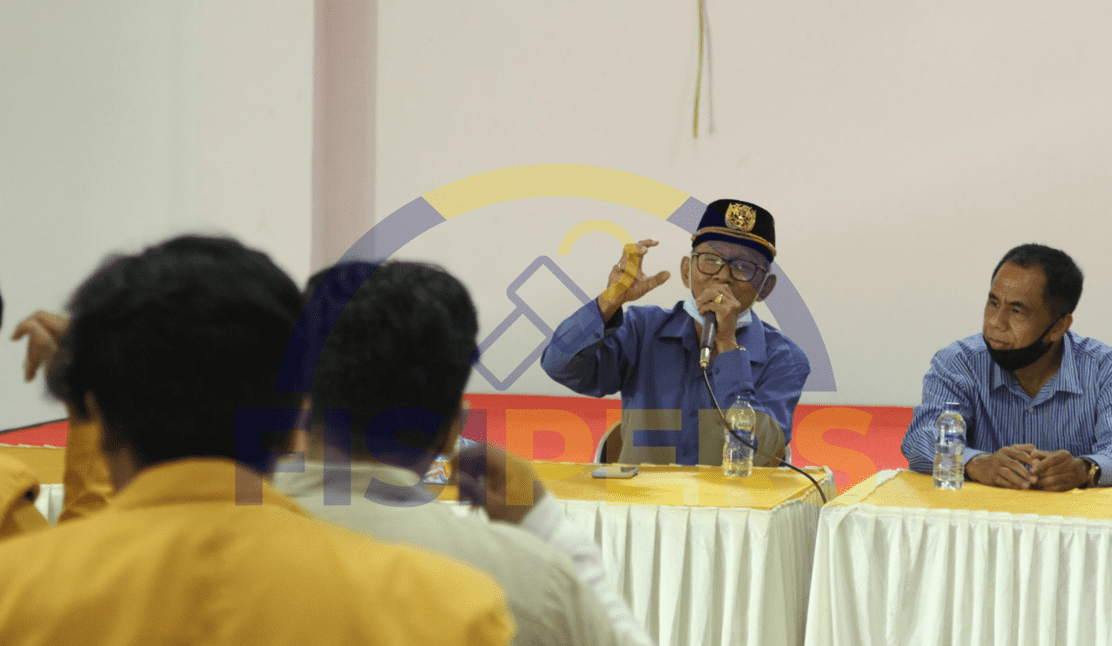 Kegiatan rutin yang hingga kini terus dilakukan oleh pihak museum antara lain; museum masuk sekolah yaitu sebuah kegiatan dimana pihak museum akan berkunjung ke sekolah-sekolah untuk memberikan edukasi mengenai museum kepada peserta didik pada jenjang SMP dan SMA. Adapun pameran keliling yang dilakukan setahun sekali dengan berkeliling ke berbagai daerah yang mendapat giliran sebagai tuan rumah. Tujuannya tentu saja sebagai ajang memperkenalkan kebudayaan dari seluruh daerah di Nusantara.
Kegiatan rutin yang hingga kini terus dilakukan oleh pihak museum antara lain; museum masuk sekolah yaitu sebuah kegiatan dimana pihak museum akan berkunjung ke sekolah-sekolah untuk memberikan edukasi mengenai museum kepada peserta didik pada jenjang SMP dan SMA. Adapun pameran keliling yang dilakukan setahun sekali dengan berkeliling ke berbagai daerah yang mendapat giliran sebagai tuan rumah. Tujuannya tentu saja sebagai ajang memperkenalkan kebudayaan dari seluruh daerah di Nusantara.
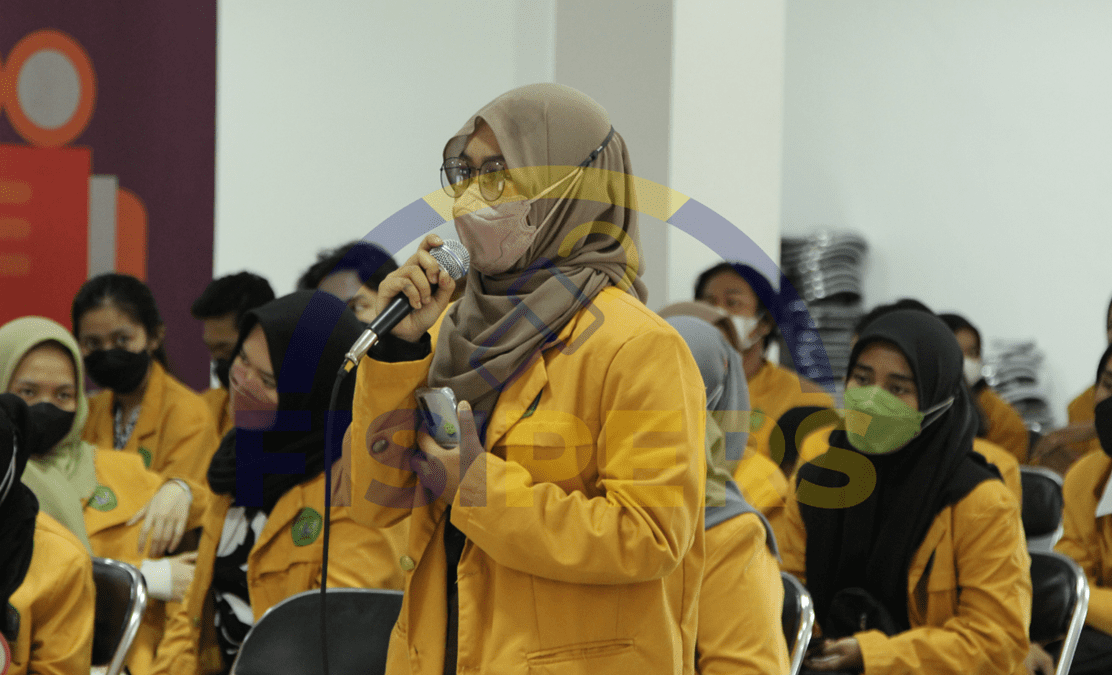 Tak ketinggalan, pada sesi tanya jawab mahasiswa dan mahasiswi pun antusias bertanya kepada kedua narasumber, Rani Berliana, salah satu mahasiswi bertanya terkait asal peninggalan benda-benda atau prasasti yang ada di museum Mulawarman, apakah terdapat benda-benda dari luar Kalimantan Timur atau hanya di lingkup Kalimantan Timur saja. “Secara umum karena posisi dan kedudukan Museum ini terdapat di provinsi Kalimantan Timur tentu peninggalan kebanyakan berasal dari Kaltim, namun ada pula beberapa benda yang juga berasal dari luar Kaltim contohnya seperti kapak batu yg berasal dari Papua.” jawab Drs. Dzul Arfin.
Tak ketinggalan, pada sesi tanya jawab mahasiswa dan mahasiswi pun antusias bertanya kepada kedua narasumber, Rani Berliana, salah satu mahasiswi bertanya terkait asal peninggalan benda-benda atau prasasti yang ada di museum Mulawarman, apakah terdapat benda-benda dari luar Kalimantan Timur atau hanya di lingkup Kalimantan Timur saja. “Secara umum karena posisi dan kedudukan Museum ini terdapat di provinsi Kalimantan Timur tentu peninggalan kebanyakan berasal dari Kaltim, namun ada pula beberapa benda yang juga berasal dari luar Kaltim contohnya seperti kapak batu yg berasal dari Papua.” jawab Drs. Dzul Arfin.
Kemudian kegiatan dilanjutkan dengan berkunjung langsung ke dalam museum, dipandu oleh bapak Dzul Arfin, mahasiswa dan mahasiswi diajak untuk mengenal satu per satu koleksi yang ada di dalam museum. Dimulai dari singgasana sultan, icon lembusuana, kerajaan Kutai yang awalnya merupakan hindu budaya, prasasti yupa, gamelan, jenis batu-batuan, penginangan, koleksi flora dan fauna, mata uang jaman dahulu, koleksi keramik, dan masih banyak lagi.
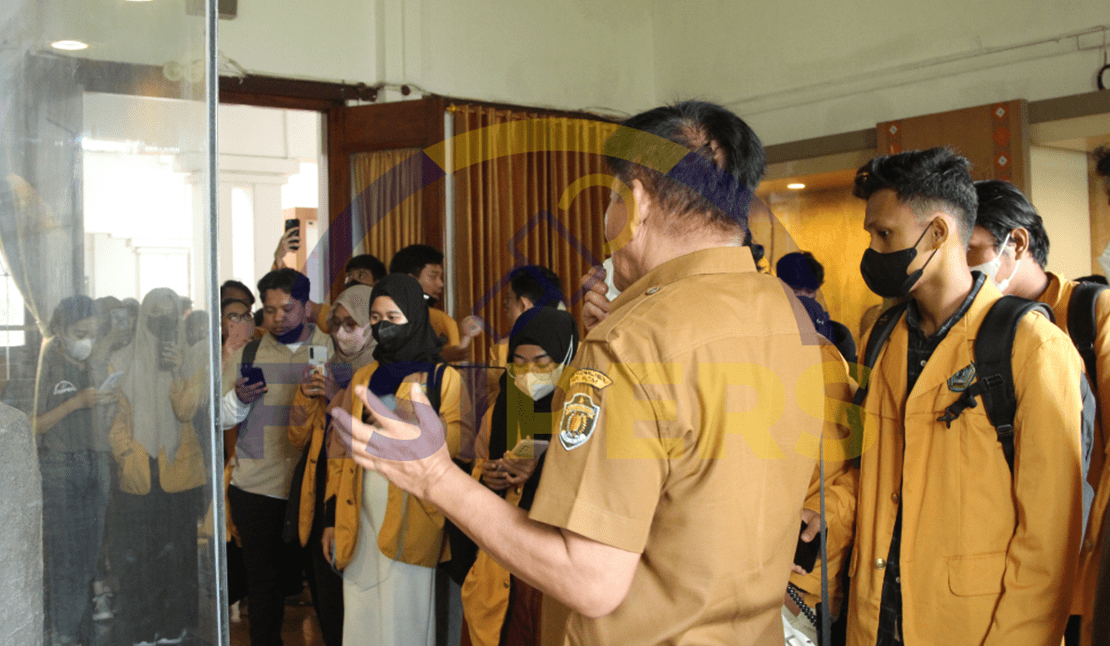 Kegiatan ditutup dengan foto bersama serta pengarahan dari bapak Drs. Andik Riyanto, M.Si terkait tugas akhir semester yang harus diselesaikan oleh mahasiswa-mahasiswi Ilmu Komunikasi B 2021. (ayn/ssy/FISIPERS)
Kegiatan ditutup dengan foto bersama serta pengarahan dari bapak Drs. Andik Riyanto, M.Si terkait tugas akhir semester yang harus diselesaikan oleh mahasiswa-mahasiswi Ilmu Komunikasi B 2021. (ayn/ssy/FISIPERS)
















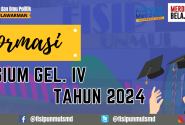
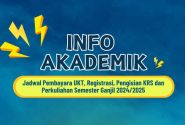
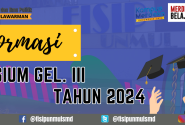
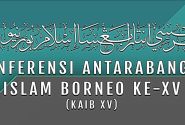
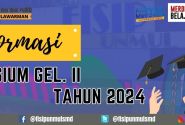
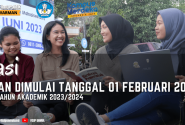
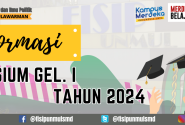
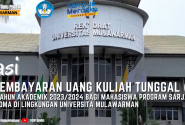


































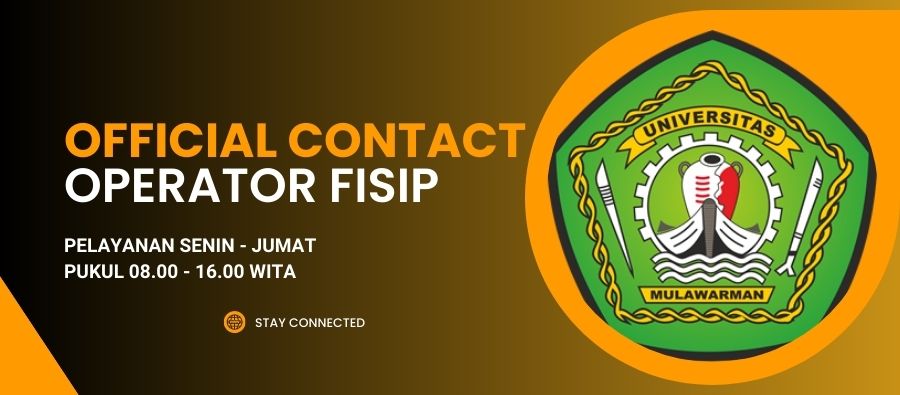
 Dalam rangka merayakan ulang tahun ke-14, Desa Songka Basketball menggelar sebuah turnamen basket. Pertandingan ini...
Dalam rangka merayakan ulang tahun ke-14, Desa Songka Basketball menggelar sebuah turnamen basket. Pertandingan ini...  Pendaftaran Pelaksanaan Sosialisasi Peningkatan Kompetensi Dosen dan Tendik Tahun 2021 melalui ...
Pendaftaran Pelaksanaan Sosialisasi Peningkatan Kompetensi Dosen dan Tendik Tahun 2021 melalui ...  No.
Nama Perusahaan
Posisi
Link Pendaftaran
1
PT Pelita Samudera Shipping Tbk
Graduate Development Program (GDP)...
No.
Nama Perusahaan
Posisi
Link Pendaftaran
1
PT Pelita Samudera Shipping Tbk
Graduate Development Program (GDP)... 
